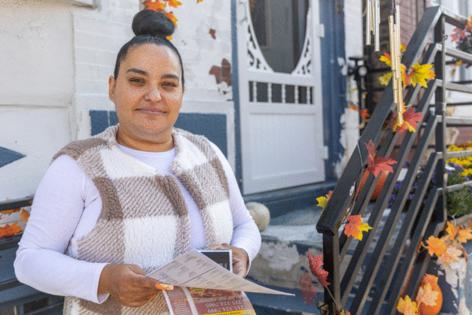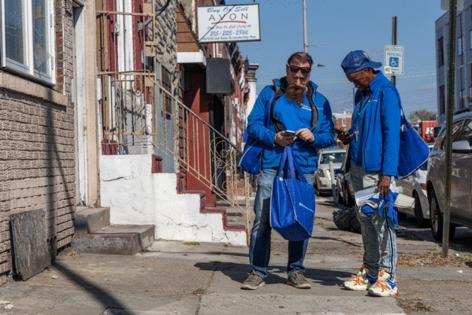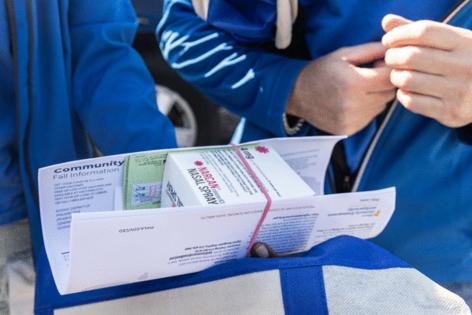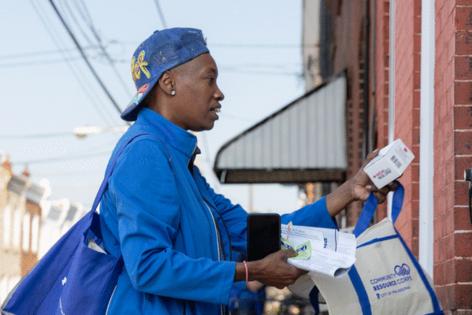To stop fentanyl deaths in Philadelphia, knocking on doors and handing out overdose kits
Published in Health & Fitness
PHILADELPHIA -- On a narrow street lined with row houses and an auto body shop in the Kensington neighborhood of North Philadelphia, Marsella Elie climbs a home’s front steps and knocks hard on the door.
A middle-aged man appears with a wary look on his face.
“Hello, sir, how are you doing today?” asked Elie, wearing a royal-blue jacket embroidered with the city government’s Liberty Bell logo. “My name is Marsella. I’m working with the city. You heard about the overdoses that are going around in the neighborhood, right?”
The man gives a cautious nod.
Elie gestures to the pamphlets she’s holding about drug overdoses and addiction treatment programs. She holds up a box of Narcan, a brand of naloxone, which can reverse an opioid overdose.
“What we’re trying to do is get this in everybody’s household. Have you ever heard of this before?” Elie asked before handing the man a tote bag filled with more pamphlets, fentanyl test strips, and the box of Narcan.
Elie and other part-time city workers and volunteers are part of a large-scale, citywide door-to-door campaign in Philadelphia that aims to equip homes with naloxone and other drug overdose prevention supplies.
City officials hope that this proactive approach will normalize naloxone as an everyday item in the medicine cabinet, and prevent people from dying of overdoses, especially Black residents.
In Philadelphia in 2022, a record 1,413 people died from drug overdoses, according to city data. Among Black residents, deaths were up 20% from the year before, with many happening in private homes.
“The best thing we can do to make these things more accessible is to just give them to people,” said Keli McLoyd, deputy director of the city’s Opioid Response Unit, speaking about the tote bag with naloxone and other supplies. “We’re not asking you if you’re using drugs. The goal here is really to build sort of a collective responsibility. As Black and brown folks, as we saw during the covid epidemic, nobody’s coming to save us. For us, this is a tool that we can use to save ourselves.”
...continued
©2024 KFF Health News. Distributed by Tribune Content Agency, LLC.














Comments